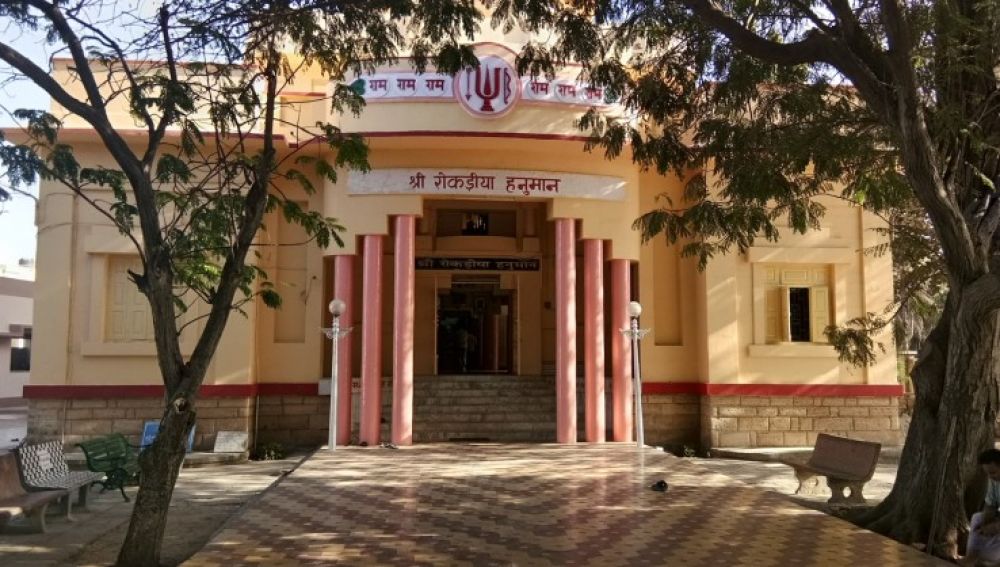

The Rokadia Hanuman Temple in Porbandar is one of the significant pilgrimage sites in Gujarat, India. Known for its religious importance, the temple has been a center of devotion dedicated to Lord Hanuman, the monkey god, who is a central character in the Indian epic Ramayana. Over the years, it has attracted tourists and devotees from across the country and has become an integral part of the tourism landscape of Porbandar.
Historically, the temple has been a beacon of spirituality for the locals. Although the exact date of the temple's establishment isn't recorded, it has been a place of worship for several centuries. Tourism around the temple began to grow as the broader interest in India's cultural and religious sites increased. Especially, the temple gained prominence as Porbandar is also the birthplace of Mahatma Gandhi, which attracted more visitors to the area.
As Indian infrastructure improved and travel became more accessible, the Rokadia Hanuman Temple witnessed an increase in the number of devotees visiting the site. The addition of modern facilities and regular events and festivals also contributed to its rising popularity amongst tourists.
In recent years, trends in tourism at Rokadia Hanuman Temple have been influenced by the digital revolution. Many potential travelers are discovering the temple through social media platforms and online travel blogs, expanding its reach to a global audience. Spiritual tourism is also becoming increasingly significant, with more people seeking meaningful experiences and personal growth during their travels.
Moreover, the government's initiatives to boost religious tourism through campaigns like 'Incredible India' have positioned Rokadia Hanuman Temple on the international stage. Enhanced connectivity, availability of guides versed in multiple languages, and improvements in local hospitality services are all part of a concerted effort to cater to the diversifying tourism sector.
Eco-friendly tourism is another trend impacting the temple's surroundings. Authorities and local communities are becoming more aware of the environmental footprint of tourism and are implementing measures to preserve the sanctity and cleanliness of the site. Efforts include reducing plastic usage, encouraging litter-free zones, and offering more vegetarian dining options to visitors.
Cultural events such as festivals celebrating Lord Hanuman, which create a unique and immersive experience for tourists, are seeing an increase in participation rates. The local government often organizes special events during important dates on the Hindu calendar to promote religious tourism and cultural exchange.
In conclusion, the Rokadia Hanuman Temple in Porbandar continues to be an important religious destination, maintaining its rich heritage while evolving with modern tourism trends. Its blend of ancient culture and contemporary practices ensures a constant flow of pilgrims and tourists looking to explore India's diverse spiritual landscape.